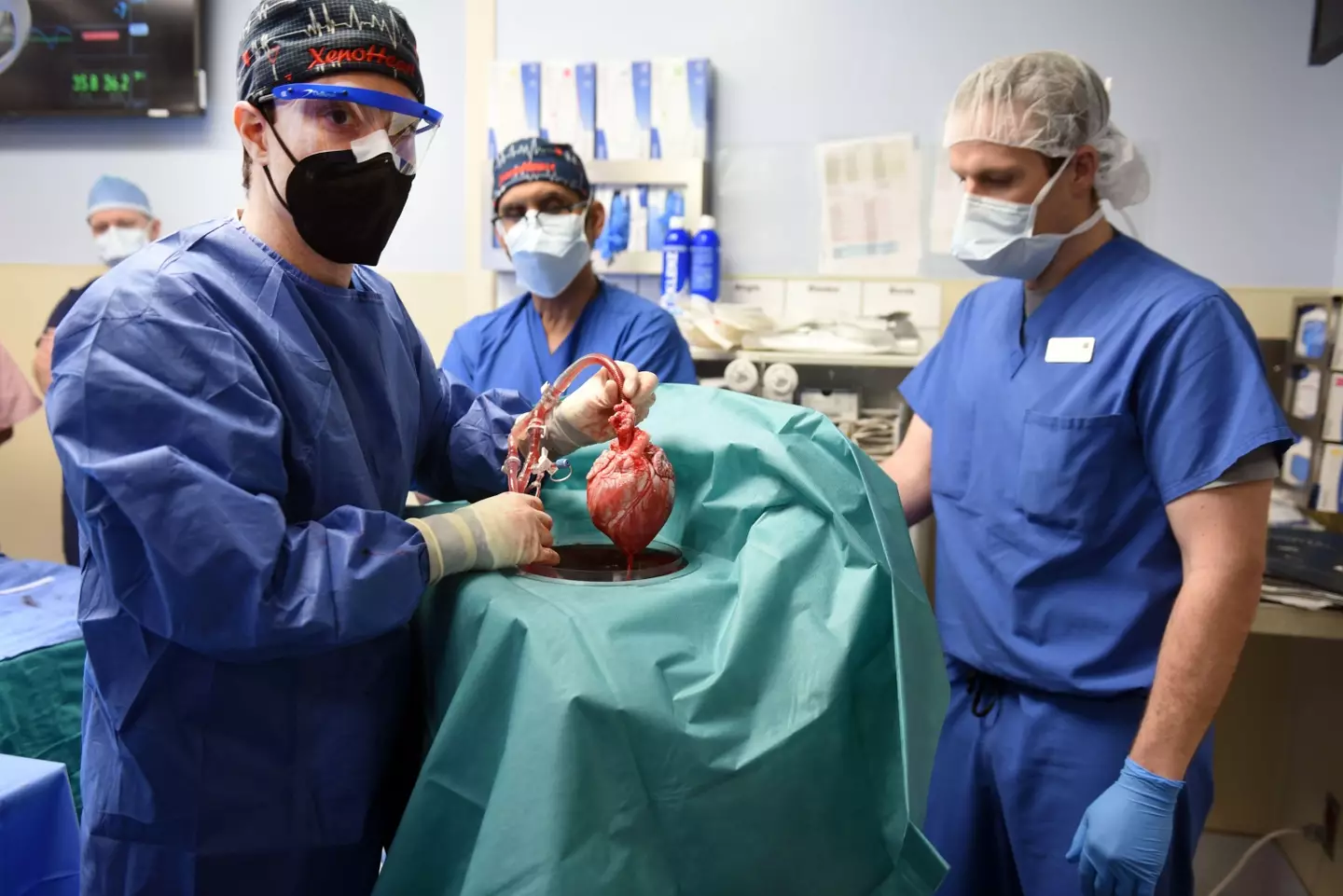.png)
The first person in the world to receive a genetically-modified pig heart heart has died two months after the transplant.
The Maryland hospital that performed the groundbreaking surgery announced the man's death on Wednesday (March 9).
Doctors have not confirmed David Bennet's cause of death, but did reveal that the 57-year-old's condition rapidly declined in the days prior.
In a statement released by the University of Maryland School of Medicine, his son praised the hospital for the last-ditch experiment to save his dad.
“We are grateful for every innovative moment, every crazy dream, every sleepless night that went into this historic effort,” David Bennett Jr. said.
Advert
"We hope this story can be the beginning of hope and not the end.”
For decades doctors have aimed to use animal organs for life-saving transplants for humans and this surgery was the first of its kind.
Doctors at the University of Maryland Medical Center had to seek special permission from the US medical regulator prior to Bennet's procedure.
Doctors acted on the basis that Bennet was ineligible for a human transplant and otherwise would be facing death.
The US handyman had already spent six weeks bedridden on life support and was running out of options.
In the lead-up to his surgery, Bennet said he understood this was his final option at survival.
"It was either die or do this transplant. I want to live. I know it's a shot in the dark, but it's my last choice," he said, in a statement released by the University of Maryland School of Medicine.
"I look forward to getting out of bed after I recover."
Although Bennet's life-span was only extended for two months, doctors are optimistic about what the man's case could mean for future transplant surgeries.
Surgeon Bartley Griffith, who surgically transplanted the pig heart into Bennet, said he hoped 'this first-in-the-world surgery will provide an important new option for patients in the future'.
"This was a breakthrough surgery and brings us one step closer to solving the organ shortage crisis. There are simply not enough donor human hearts available to meet the long list of potential recipients," he said.
According to organdonor.gov, roughly 110,000 Americans are currently waiting for an organ transplant.
More than 6,000 people will die before getting one.

While this groundbreaking surgery carries risk, it holds hope for thousands waiting on the donor list as time ticks by.
Although this surgery is the first of its kind, doctors have been toying with animal donors for decades.
This type of surgery - called a xenotransplant - was first tried back in the 1980s.
They were largely abandoned after the case of Stephanie Fae Beauclair, an infant born with a fatal heart condition.
Doctors used a baboon heart in an attempt to save the little girl, but she died within a month as her immune system rejected of the foreign heart.
Pig heart valves have also been used successfully for many years in human transplants.